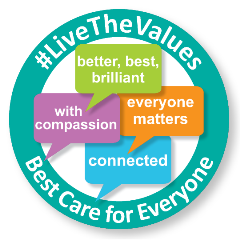Recruiting Disabled Employees
The barriers to employment
Specific barriers to employment exist for disabled people. They may be cautious in approaching employers because of fear of prejudice. They may worry an employer will rule them out immediately because they see a wheelchair or other aid. Or because they don't want to accommodate workplace supports such as flexible hours, wheelchair access or special IT programmes.
For employers, they may have preconceived notions (which they may or may not be conscious of) about what disabled people are capable of. This can potentially hold them back from hiring. The perceived cost of supports and up-skilling could also be an issue.
It is vital that organisations see the benefits of hiring people who live with disabilities.
Five benefits of hiring disabled people
Disabled people contribute every day to our communities as business owners, employers, managers and workers in a huge range of industries.
Yet we still have work to do. Stats NZ reports disabled people are three times less likely than the general population to be in work. They're also vastly over represented in New Zealand’s poverty figures. And 74% of those who are not in work want to be working.
Here are five, for starters.
1: Diversity and innovation
Every business needs to innovate to stay relevant. Consumers want new products, added value and new ideas. So how do we cultivate innovation? Having a diverse workforce is key. You need people of all cultures, genders and life experiences who can contribute different perspectives.
Your bottom line will benefit too. A 2018 Accenture study showed businesses that actively seek to employ people with disabilities outperform businesses that don’t. Their revenues were 28% higher, net income was two times more, and profit margins were higher by 30%.
‘Getting to Equal’: Accenture study
McKinsey & Co research has also consistently found that the most diverse companies across a range of countries and industries outperform the least diverse.
‘Why Diversity Matters’: McKinsey & Co research
2: High work quality
Sometimes, there’s a stereotype that disabled people are somehow less capable. Yet Kiwi think tank, the Maxim Institute, has found that the job performance of people with disabilities is often better than people without.
‘Acknowledging Ability’: Maxim Institute research
3: Better retention
People with disabilities are more likely to stay in a role for longer. Stats NZ has found that people with a disability tend on average to stay longer in their job (10.6 years). Non-disabled people averaged three years less (7.0 years). Evidence also shows those living with disabilities take less sick leave than those without.
Stats NZ disability information
4: Better morale and culture
Studies show employees think better of the business they work for if there is greater diversity. Accommodating the needs of disabled staff also shows you care, which improves employee-employer relations.
5: Better reputation
One in five working age New Zealanders have some sort of impairment. You enhance your reputation if your workforce and public image reflects the diversity of your customers. A 2017 survey from the US National Business and Disability Council found 66% of consumers will buy from a business that features people with disabilities in their advertising. And 78% will buy goods and services from businesses that ensure accessibility at their physical locations. Read the study below:
‘A Hidden Market: The purchasing power of working-age adults with disabilities.’
What we're doing
At Waitematā Health, we’ve started our journey towards being fully inclusive and diverse. We’re not perfect, but we’re making progress. We want to be an organisation that proactively hires disabled people. We are working to recruit and retain more people with disabilities and other physical and mental health conditions. We are committed to have an inclusive and accessible recruitment process and providing the opportunity for disabled candidates to demonstrate their abilities . As part of this work, we have gained the Accessibility Tick. The tick is a public recognition of an organisation’s commitment to ensuring that disabled people have the opportunities to fulfil their potential and realise their aspirations.
Click here to find out more about the Accessibility Tick Programme

Final thoughts
Hiring people disabled people isn’t just the right thing to do, it’s good business.
So, what are you waiting for? Talk to your Recruitment Consultant for further information on what you need to do.
Please note: This information is based on the following article - https://www.acc.co.nz/newsroom/stories/five-benefits-of-hiring-people-living-with-disabilities/

